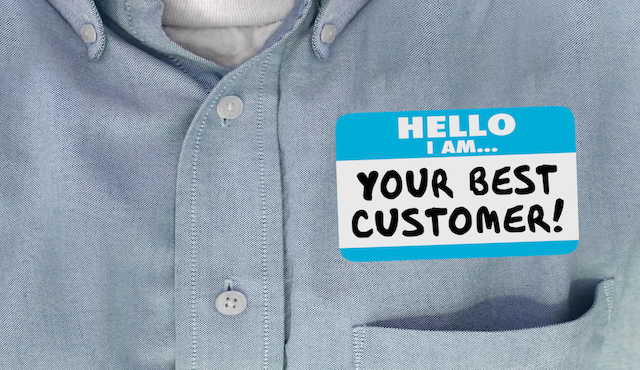By: Tim Slater, Fat Lama
In 2013, a year before Deliveroo was launched, founder Will Shu was working as a deliveryman. Driving around central London on scooter, the former investment banker ended up delivering a pizza to his former boss. It must have simply looked like Shu had gone off the rails, lost his job or got himself fired.
Fast-forward five years and Deliveroo is the largest delivery service in Britain, worth £1.3bn with that deliveryman at its helm. In 2013, Shu wasn’t out of work but simply researching the company he planned to build. He wanted to know about his customer.
There is a lot that comes into running a successful business. Luck, timing and the right backing are all vital to success, but we can forget sometimes just how important knowing your customer is, particularly once up and running. It’s no surprise then that Deliveroo has become one of the most influential tech companies, when you consider the commitment Shu had in researching his customer. It serves as a precedent to all CEOs and marketers that it takes a customer to know a customer.
Expand your Horizons
Being your own customer ultimately keeps you grounded; you are in touch with how your company works from the ground up and you can identify areas that need improving. If you lose sight of your market, you’ll end up with a situation like that of the Ford “Edsel”. This spectacular failure made a loss of $350m and was discontinued after 3 years. The reason? Ford had forgotten who their customers were. The Edsel was an up-market car, one that the lower to middle-class Americans, who had bought the “Model T” back in 1914, could not afford. It’s a classic example of C-level detachment from their demographic.
If you put yourself into the customer’s shoes, not only do catastrophes such as the Edsel become predictable and avoidable, but you also gain insight into what direction your company should move in. Fat Lama, the peer to peer rental marketplace, came up with one one of its most successful innovations as a result of the team’s ground-level use of its own platform. The instalment of a live search bar on its website came about not as strategy for growth but simply from Fat Lama’s team renting items out on the website. Having gone rifling through search data when deciding which of their belongings to rent, the idea was proposed that this information was made publically available. It’s often the case that companies have the most success when they touch upon simple, organic ideas that hit a niche in the market. Gaining insight into the customer’s frame gives you that frame of mind.
Understand your Customers
When businesses expand there is often a risk for the quality of customer service to decline. It is sometimes unavoidable in that a small personal service is not sustainable during periods of fast growth. As a CEO or exec, one’s time becomes increasingly filled with management, meetings and liaising with investors, to the point where the only interaction with customers is starting at them as numbers in data reports. It’s at this stage that companies run into trouble with their core customers.
That’s why reversing the roles and becoming the customer works wonders at reconnecting you to their needs and plights. A fitting analogy would be that a waiter always tips generously in a restaurant. It is a great example of how empathy makes for a balanced business relationship. If you establish a degree of empathy, not only does your quality of customer service improve, but you also glean an insight into how and why people are using your product. A great example of this is the genesis of Buzzfeed. Jonah Peretti the brains behind the brand, spent months and months whilst at Huffpost, monitoring trends in blog content and following URL trails before coming up with the exact format of Buzzfeed. In other words he knew exactly how is customers behaved and what they wanted before he even put a dime into development.
From the Bottom to the Top
Although this has largely been aimed at the CEOs and executives, it’s as relevant to, if not more relevant to those C-level employees who handle the running of the business day to day. Middle management are ultimately the ones who deal with with customers regularly, triage issues as they occur and often spearhead company innovations. So the more in touch with the customer’s frame of mind, the smoother your company will run. It also has huge benefit for employees themselves. Feeling personally involved in a company fosters a much more positive and proactive office environment. The best example is Airbnb, who actively encourage their personnel to feel part of the company vision, to the point where every conference room is in fact modelled on the living rooms of popular listings. This sort of environment where everyone feels like they are part of one team, one vision, is what all businesses should strive to achieve.
Sit back and Enjoy
There are many reasons why being your own customer is a sensible business decision, however at the end of the day it should be an enjoyable experience. Whether you have been there since the beginning or pitched in a bit later, you have helped build this company, so have a bit of fun with it.
